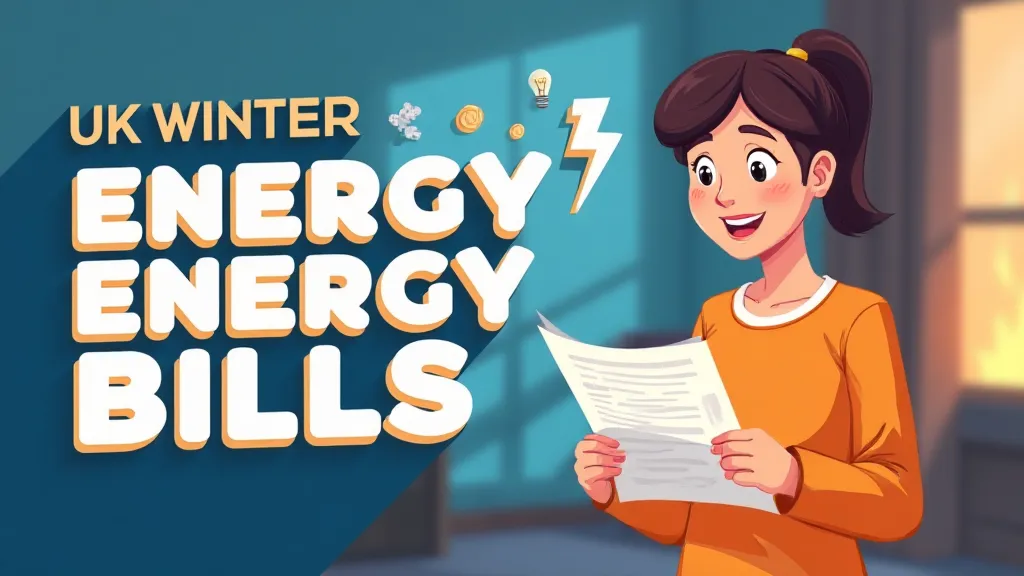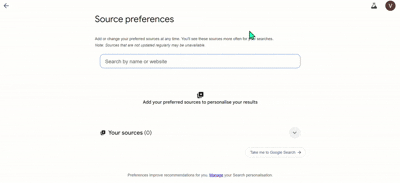
Hi friends! Winter is coming, and with it, the annual worry about keeping our homes warm without breaking the bank. If you’re feeling anxious about your UK winter energy bills 2025, you are definitely not alone. In this guide, we’re going to break down everything you need to know. We’ll explore the official winter energy forecast, explain all the available government support like the council tax rebate, and most importantly, dive into seven super practical, proven tips to slash your costs. This isn’t about shivering in the dark; it’s about being smart, efficient, and claiming every penny you’re entitled to. Let’s get started on making this winter a more affordable one!
Understanding the 2025 Winter Energy Forecast for UK Households and UK energy prices
The Outlook for the Energy Price Cap
Let’s talk about the big one first: the energy price cap. Set by Ofgem, this cap limits the amount you can be charged per unit of energy if you’re on a standard variable tariff. For the period covering UK winter energy bills 2025, the forecast is cautiously optimistic but still challenging. Analysts at Cornwall Insight predict the cap will see a slight decrease from the extreme highs of 2022-2023 but will remain significantly above pre-crisis levels. The typical annual dual-fuel bill is projected to be around £1,560 from October 2024 to December 2024, setting the stage for winter. This is based on expected lower wholesale gas prices, but as we all know, these forecasts can change rapidly due to global events. The key takeaway? While not as catastrophic as previous winters, bills will still consume a substantial portion of household budgets, making support and savings essential.
Factors Influencing the Winter Energy Forecast
So, what’s actually driving these UK energy prices? It’s a complex mix of international and domestic factors. Globally, the geopolitical situation continues to impact gas supplies, particularly from regions like the Middle East and the ongoing effects of the war in Ukraine. Domestically, the UK’s increasing reliance on renewable energy is a double-edged sword; while it helps in the long term, a calm, cold winter (known as a ‘dunkelflaute’) with little wind can reduce renewable output and increase demand for gas-fired power stations, pushing prices up. Furthermore, the structure of the energy market itself means that the price of electricity is often tied to the most expensive source used to generate it, which is frequently gas. Understanding these factors helps explain why your bill is what it is, even when you’re trying to be careful.
Comparing 2025 to Previous Winters
To truly grasp the winter energy forecast, it’s helpful to look back. The winter of 2022/2023 was a perfect storm, with the price cap peaking at an astonishing £4,279 per year for a typical household, mitigated only by the government’s Energy Price Guarantee which limited it to £2,500. The following winter (2023/2024) saw the cap fall to around £1,928, and then to £1,690 by summer 2024. The forecast for UK winter energy bills 2025 suggests a stabilisation, but not a return to the cheap energy of the past. For example, the average annual bill in 2021 was just £1,138. This means households are still paying nearly 40% more than pre-crisis norms. This historical context is crucial—it shows progress but underscores the continued need for vigilance and support.
Government Support Schemes: From Council Tax Rebate to Winter Fuel Payment
Breaking Down the Council Tax Rebate
One of the most significant forms of direct support announced is the council tax rebate. This scheme is designed to provide a one-off payment to help households with the rising cost of living, particularly energy. For the 2024/2025 tax year, the core eligibility criteria typically requires your property to be in council tax bands A through D. This encompasses around 80% of all households in England. If you qualify, you could receive a non-repayable rebate of £150 directly into your bank account. It’s important to note that this is not a discount on your future council tax bill, but a separate cash payment. The key is to ensure your local authority has your correct direct debit details, or if you don’t pay by direct debit, to apply through their official online portal as soon as possible to avoid delays.
Understanding the Winter Fuel Payment
For our pensioner friends and family, the winter fuel payment is a critical annual support mechanism. This is a tax-free payment made to those born on or before September 24, 1957, to help them cover their heating costs during the coldest months. The amount you receive depends on your circumstances during the qualifying week (usually in September). For winter 2024/2025, a household with one eligible person could receive between £250 and £600. If you live with a partner who also qualifies, or if someone else in the household qualifies, the amount may be different. The beautiful part is that most eligible people receive this payment automatically—you don’t need to claim if you get the State Pension or another social security benefit (excluding Housing Benefit, Council Tax Reduction, or Child Benefit). If you don’t get it automatically, you must claim it, and the deadline is usually March 31, 2025.

Additional Local Grants and Support
Beyond the national schemes, there is a patchwork of localised government energy support that often goes unclaimed. The Household Support Fund, distributed by local councils, is a prime example. This fund is designed to help vulnerable households with essential costs, including energy and water bills. The eligibility and application process vary wildly from one council to another—some may offer supermarket vouchers, others direct cash payments or bill credits. Furthermore, suppliers themselves are obligated to offer support through schemes like the Warm Home Discount, which provides a one-off £150 discount on electricity bills for those receiving certain benefits. The best course of action is to proactively visit your local council’s website or contact them directly to inquire about any discretionary funds you might be eligible for. It’s help that’s there for the taking.
7 Proven Energy Saving Tips to Drastically Reduce Your Heating Costs
Master Your Thermostat and Heating Zones
Honestly, this is the biggest win for the least effort. Turning your room thermostat down by just one degree can save you up to 10% on your heating bill according to the Energy Saving Trust. For most homes, setting it between 18°C and 21°C is perfect. But let’s get smarter. If you have thermostatic radiator valves (TRVs), use them! There’s no need to heat every room to the same temperature. Keep living rooms cozy at 18-21°C, but bedrooms can be cooler (16-18°C is fine for sleeping), and hallways and spare rooms can be set to a frost-protection setting (around 12-14°C). This zoning approach means you’re only paying to heat the spaces you’re actually using. This single tip is one of the most effective ways to reduce heating costs immediately.
Become a Draught-Exclusion Expert
You know that chilly breeze you feel near windows and doors? That’s your money literally flying out of your home. Draught-proofing is one of the cheapest and most effective energy saving tips you can do yourself. Focus on the obvious gaps: around windows (use self-adhesive foam strips), under doors (a simple brush or hinged flap draught excluder works wonders), and around letterboxes and keyholes (you can buy specific covers for these). Don’t forget less obvious spots like gaps around pipework where it enters your home (seal with flexible filler) and unused chimneys (a chimney balloon can block it up). This DIY mission might cost you £20-£50 but can save you around £45 a year on energy bills. It’s a no-brainer.
Optimize Your Radiators and Hot Water
Your radiators might be working against you. A simple thing like bleeding them once a year ensures they are full of water and not air, making them heat up efficiently. If they are cold at the top but warm at the bottom, they need bleeding. Another pro tip: make sure your furniture isn’t blocking them. A sofa in front of a radiator soaks up heat that should be warming the room. Also, reflect heat back into the room by fitting radiator reflector panels behind them, especially on external walls. This stops heat from being absorbed by the wall and lost outside. Finally, look at your hot water cylinder. If it’s older, fitting an insulating jacket (at least 80mm thick) can save significant energy and keep your water hotter for longer.
How to Apply for Your Energy Bill Rebate and Government Energy Support
Step-by-Step: Claiming the Council Tax Rebate
Applying for the energy bill rebate via the council tax system is usually straightforward, but you must follow the steps carefully. The process for receiving your £150 council tax rebate is typically automated if you pay your council tax by direct debit. Your local council will already have your bank details and will credit the amount directly to your account. You should receive a letter or email confirming this. If you do not pay by direct debit, the process is different. You will need to apply through your local council’s dedicated online portal. You will likely need to provide your council tax account number and proof of identity. Be extremely wary of scams—your council will never ask for your bank details via a text message or a phone call out of the blue. Always navigate to your council’s website directly by typing the URL into your browser.

Navigating the Warm Home Discount Scheme
The Warm Home Discount is another crucial form of government energy support. For the 2024/2025 scheme, it provides a £150 discount on your electricity bill between October 2024 and March 2025. There are two groups: the ‘Core Group’ and the ‘Broader Group’. If you are in the Core Group, you will receive a letter telling you you’re eligible and the discount will be applied automatically—you don’t need to apply. This group is for those receiving the Guarantee Credit element of Pension Credit. If you are in the Broader Group (receiving certain means-tested benefits and have high energy costs), you must apply directly to your electricity supplier. Each supplier has its own eligibility criteria and a limited number of discounts, so you must apply as early as possible, usually from August onwards. Check your supplier’s website for their specific process.
Troubleshooting and Rejected Claims
What happens if your application for support is rejected or you face issues? Don’t just give up. First, double-check the eligibility criteria against your own circumstances. Common reasons for rejection include being in the wrong council tax band (you can check your band on the GOV.UK website) or missing the application deadline. If you believe there’s been an error, contact your local council’s council tax department directly via phone or email. For issues with the Warm Home Discount, contact your energy supplier’s customer service team. Keep a record of all your communication, including reference numbers. If you’re not getting anywhere, organisations like Citizens Advice can provide free, expert guidance and may be able to advocate on your behalf to resolve the problem.
Long-Term Strategies to Shield Yourself from Rising UK energy prices
Invest in Home Insulation
While the previous tips are about immediate savings, this is about building a fortress against future price hikes. The single best long-term investment to reduce heating costs is proper insulation. A quarter of your home’s heat is lost through the roof if it’s uninsulated. Loft insulation is relatively inexpensive and can save up to £315 a year on energy bills for a semi-detached house. Similarly, cavity wall insulation can save around £250 a year. For older homes with solid walls, insulation is more expensive but offers even greater savings (around £930 a year for a detached home). While there is an upfront cost, government grants like the Great British Insulation Scheme or ECO4 can help cover some or all of the expense for eligible households. Think of it as paying for tomorrow’s cheaper energy bills today.
Upgrade Your Heating System and Controls
If your boiler is over 10-15 years old, it’s likely a G-rated relic operating at well below 80% efficiency. A modern condensing boiler is A-rated and over 90% efficient, meaning more of the gas you pay for is converted into heat for your home. Replacing an old gas boiler with a new A-rated one could save you up to £840 a year. Pair this with a smart thermostat and smart TRVs for ultimate control. These systems learn how long it takes to heat your home and allow you to control heating remotely, ensuring you never heat an empty house. For an even bigger step, consider a heat pump. While the initial investment is high (£7,000-£13,000), the Boiler Upgrade Scheme offers a £7,500 grant to help with the cost, and they are incredibly efficient, slashing your carbon footprint and protecting you from gas price volatility.
Generate Your Own Power
The ultimate way to gain independence from the grid and UK energy prices is to generate your own electricity. Solar panels are the most common solution. While the upfront cost is significant (£5,000-£10,000), the savings are substantial. A typical system can reduce your electricity bills by 50-70%, and with a home battery, you can store excess energy to use at night. Under the Smart Export Guarantee (SEG), energy suppliers even pay you for any surplus electricity you export back to the grid. The payback period has shortened considerably with higher energy prices, and it adds value to your property. It’s a long-term financial and environmental investment that permanently changes your relationship with energy bills.
Where to Seek Immediate Energy Bill Help If You’re Struggling with Payments
First Point of Contact: Your Energy Supplier
If you’re already struggling or worried you might fall behind, the absolute first thing you must do is contact your energy supplier. Under Ofgem rules, they are obligated to help you find a solution. This is the most direct form of energy bill help available. They can discuss options like affordable payment plans based on what you can actually pay, giving you more time to pay, or even putting you on a temporary payment break. They can also provide access to hardship funds; for example, the British Gas Energy Trust offers grants to customers of any supplier, not just British Gas. Importantly, they can advise you on whether you should be on the Priority Services Register—a free support service for those of pensionable age, disabled, or with long-term health conditions.
Free and Independent Advice from Charities
Never underestimate the power of free, impartial advice. Organisations like Citizens Advice and StepChange are lifesavers for anyone facing financial hardship. Citizens Advice has dedicated energy experts who can help you understand your rights, negotiate with your supplier on your behalf, and check you’re getting all the benefits and grants you’re entitled to. They can also help you with debt management plans if your energy debt is part of a wider problem. StepChange is a specialist debt charity that offers free, confidential advice and can help you build a sustainable budget. They can also guide you through processes like applying for a Fuel Voucher if you’re on a pre-payment meter and have self-disconnected, which is a serious and dangerous situation.
Local Authority and Community Support
Your local council is often a hub for various support schemes that can provide immediate energy bill help. As mentioned, the Household Support Fund is distributed by councils and can offer cash grants or vouchers for energy bills. Many councils also run local welfare assistance schemes or have partnerships with food banks that can provide fuel vouchers. Beyond the council, look to your community. Local churches, mosques, gurdwaras, and community centres often run warm banks or warm spaces—public buildings where you can go to keep warm for free during the day, saving on your own heating costs. It’s also worth checking if there are any local energy cooperatives or charities that offer free energy advice visits to help you identify savings in your home.
FAQs: winter fuel payment Qs
And there you have it, friends! A complete guide to navigating your UK winter energy bills 2025. It might seem daunting, but remember, you have more power and more options than you think. From claiming every bit of government energy support you’re entitled to, like the council tax rebate and winter fuel payment, to implementing those seven practical tips to reduce heating costs, you can take control. Start with the easy wins like draught-proofing and thermostat tweaks, and keep the long-term upgrades in mind for the future. Most importantly, if you’re struggling, please ask for help. Speak to your supplier, contact Citizens Advice, and lean on the support available. You don’t have to face this alone. Here’s to a warm, safe, and affordable winter for you and your family!
What was your most effective energy-saving hack? Share your tips in the comments below to help others in our community save money too! And if you found this guide helpful, please share it with a friend or family member who might need it.














